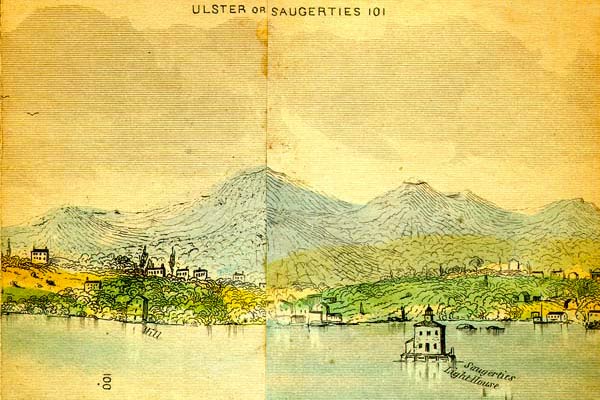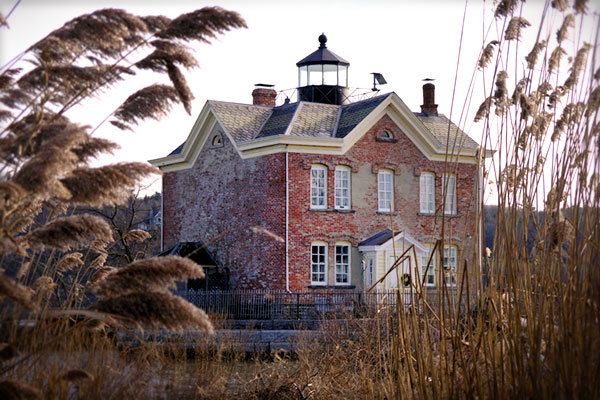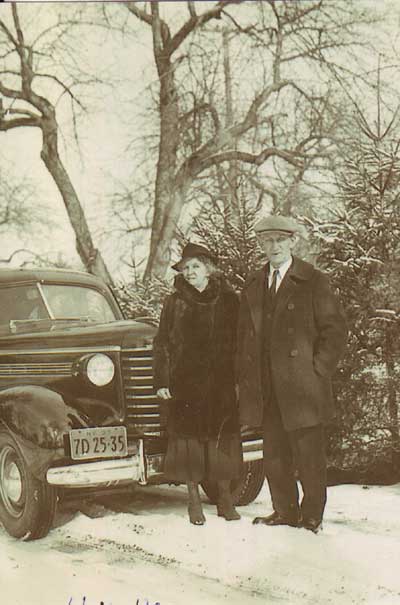Life in a Lighthouse
September 20, 2019

Illustration of the original 1835 Saugerties Lighthouse (lower right) from William Wade’s 1846 engraving Panorama of the Hudson River
LIGHTHOUSES are romantic vestiges of a less sophisticated time. Many historic American lighthouses have been destroyed, which is a shame, because the lonely vigilance of their resident lighthouse keepers and the stories of the lives they have protected make old lighthouses objects of fascination.
My husband and I visited the Saugerties Lighthouse on the Hudson River this summer. The Hudson is one of the most beautiful rivers in the world and here, 110 miles north of New York City, where it wends its way through the Catskill Mountains, the river is surrounded by charming, low hills and lush foliage. The lighthouse is not far from where Henry Hudson stopped in Turkey Point in 1609 during his explorations along the mighty river. The first Saugerties lighthouse was constructed in 1834 at the mouth of the Esopus Creek off a swampy shore on land donated by Robert Livingston. The much larger existing lighthouse, completed in 1869, sits on a stone pier on 65-foot pilings in the water. The lights were initially illuminated by whale oil, later replaced by mineral oil and eventually electricity in 1947. Its oil lens was visible from ten nautical miles away.
It was one of nine lighthouses from Albany to New York when the Hudson was a main commercial artery in the nineteenth century, providing transportation for passengers and essential goods with its direct connection to the Atlantic Ocean. Sailboats owned by the great estates that sprang up along the river also passed by Saugerties.
The lighthouse was automated in 1954 by the Coast Guard, doing away with the need for a lighthouse keeper. Twenty-one keepers had maintained the light tower and lived in the lighthouse over the years. The last keeper died a month after it was closed, reportedly from grief. The house fell into disrepair and was slated for destruction until local residents saved it. It has been restored and now functions as a bed and breakfast, allowing people to stay there for a high fee ($250 a night for two) and taste the life of a lighthouse keeper.
We did not stay, but during our short visit I noticed an item in a small exhibit about a girl who had lived in the lighthouse for much of her childhood. Ilah Kauffman’s father, Conrad Hawk, was the lighthouse keeper for 26 years. Judging from her description, it was an ideal place to grow up.
“When fog started, we wound up the bell, All night it would ring with this beautiful bong sound,” she told The Sunday Record in an interview on August 25, 1974. “Sometimes we’d help people whose boats were in trouble. I remember a yacht that broke down. After we helped, the owner sent us 15 pounds of candy. My, that was a windfall. My brother and I were only given a penny to spend every Sunday, so this was like manna from heaven.”
The family had no electricity and no indoor plumbing. They played cards and listened to music by the light of oil lamps. They grew a garden and preserved their produce for the winter ahead. The father harvested ice in the winter. Ilah was an accomplished knitter and ice skater, being able to skate right outside their door.
She remembered one Christmas when her father bought a phonograph from Sears Roebuck.
“We sat around the tree father cut on shore, lit with candles, listening to Caruso sing. We sat up until 2 a.m., listening, watching the candles drip. It was beautiful.”
Reading her story and viewing this magnificent river from the simple, but stately house surrounded by water, with large windows and warm brick, I was reminded that often the very best life is one that is somewhat deprived.
A lighthouse family must stay put. “We never had much money,” Ilah said, “but I don’t ever remember the lack of essential things.”
To have nature all around and the time to play cards, to knit, read and sing together seems far better than life in the middle of a rushed civilization with the questionable privilege of constantly being able to get up and go.


